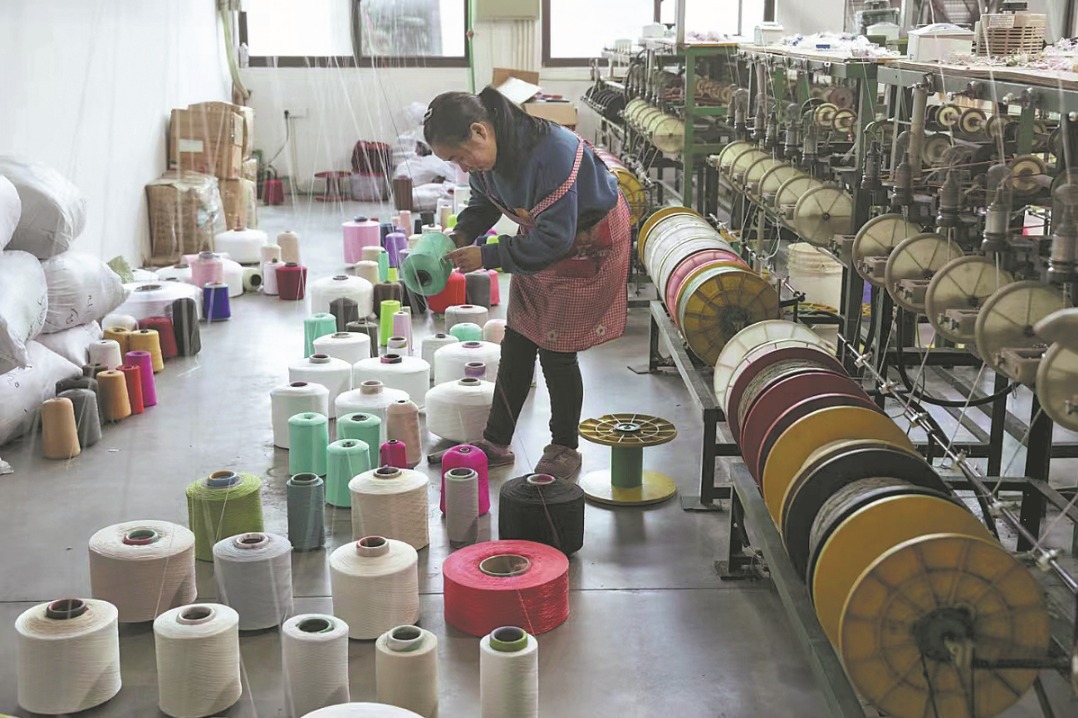No sight, but still on the lookout for love

Prejudice
Teng noted that widespread discrimination against the visually impaired is a major contributor to martial hardship.
"Many believe blind people are ultra-dependent and can do nothing on their own, which is not the case," said the former optometrist in Beijing, who went blind in 1978 after being infected with tuberculosis bacteria while performing eye surgery.
After Teng lost his sight, his girlfriend, a former classmate who is also an optometrist, insisted that they got married. They quickly had a son, but social discrimination led Teng to consider divorce to protect his loved ones from hurt.
"One time, my wife cried in front of me after a colleague told her she was not considered for a promotion because she had to take care of her blind husband," he said.
"My son was bullied by classmates many times in kindergarten. They ridiculed him for having a xiazi father, a derogatory term for being blind."
Teng said a lack of involvement with mainstream society lies at the root of the fear and unfriendly attitudes. "Only a quarter of this group is employed, and most visually impaired people don't have social lives," he said.
He noted that the lack of contact has led to unfamiliarity and a sense of fear of the group, who are stereotyped as lonely and dependent. However, greater contact with mainstream society would allow blind and visually impaired people to show how much they can do on their own, which would surprise many people.
Lack of contact
In addition to their absence in the workplace, China two-track education system means disabled and able-bodied children are largely segregated from primary school through to university, so the two groups rarely get an opportunity to meet.
Nie Zhongyuan, a media professional who has directed three television adverts designed to raise awareness of the correct use of accessible facilities for the disabled, said the lack of mainstream contact with blind people creates a vicious circle.
"Though China has made strides to promote inclusion in education and the workplace, the lack of accessible facilities has led to visually impaired and blind people being underrepresented in the public sphere. Their absence exacerbates public ignorance of their conditions and the resulting prejudice," said Nie, creative director at Huagan Creative Communication in Nanchang, Jiangxi province.
Li Zhen, a blind Braille editor at the China Braille Press, said personal charm matters when starting a relationship, but many visually impaired people lack that quality as a result of poor education and minimal social contact.
The most recent available statistics - the Second National Sample Survey on Disability in 2006 - showed that 43.9 percent of disabled people were illiterate, and experts said the rate for the visually impaired is likely to be even higher because their disability affects their access to information.
To promote integrated education, China rectified the law related to compulsory education in 2015, ordering mainstream schools to accept disabled students who are deemed capable of receiving a standard education.
In the same year, the government made it easier for disabled people to take the gaokao - the national college entrance exam - by requiring examining bodies to offer "reasonable" assistance. That means visually impaired examinees must be provided with test papers written in Braille or large-print characters.
In addition, last year, China made it illegal for schools to turn away disabled people, a common occurrence in the past. Figures provided by the China Disabled Person's Federation show that almost 30,000 disabled people have been admitted to mainstream universities via the gaokao since 2015.
Liang said blind or visually impaired people who study on integrated campuses or are employed in nonsegregated workplaces find it easier to fall in love, because people are less prejudiced about blindness, and "they are less fearful of the condition if they study or work alongside blind or visually impaired people".
- Dominican Republic joins international bamboo organization
- China steps up support for social participation of seniors amid population aging
- Death toll rises to four in Guangxi landslide
- Xi extends condolences over death of former Vietnamese president
- China, Indonesia set example of win-win cooperation for major developing countries, says Premier Li
- Chinese premier lands in Indonesia for official visit




































